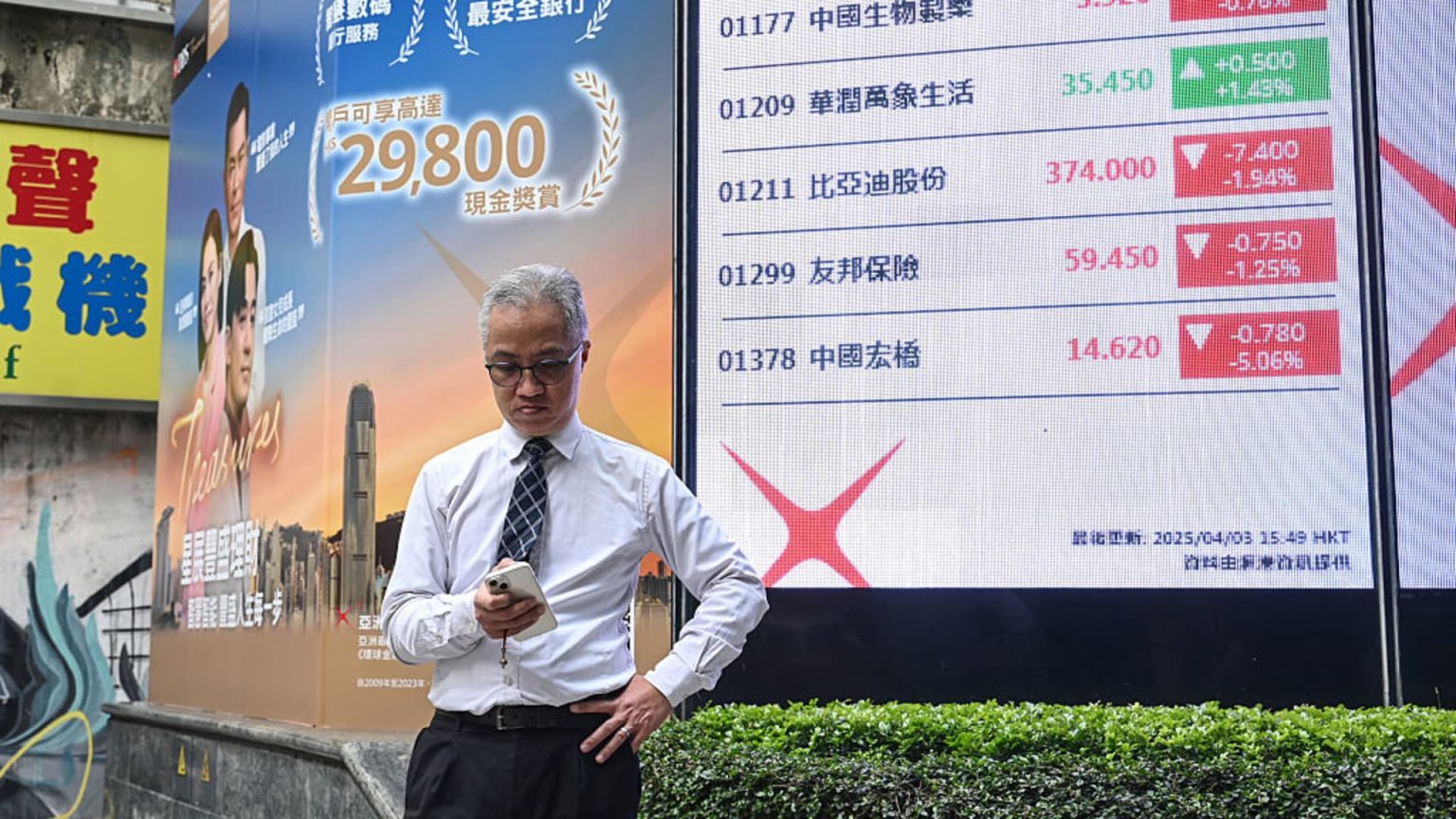On April 3, 2025, U.S. markets experienced a significant downturn amidst escalating trade tensions with China. Following the announcement of a new wave of tariffs by the U.S. government, Beijing retaliated with substantial tariffs on imports from the United States. The situation is evolving rapidly, with stakeholders across the globe closely monitoring the implications for economic stability and growth.
China’s Foreign Ministry made a statement regarding the U.S. decision to impose tariffs, urging the White House to engage in discussions aimed at de-escalating the conflict. As market reactions unfolded, both investor anxiety and concerns about broader economic repercussions dominated the narrative.
In the wake of these developments, U.S. President Donald Trump announced a broad set of new tariffs, further inciting fears of economic instability. As tensions mount, it remains to be seen how these measures will affect global markets and the U.S. economy overall.
| Article Subheadings |
|---|
| 1) The Market Response to New Tariffs |
| 2) China’s Retaliation and Statement |
| 3) Impact on Investor Sentiment |
| 4) Broader Economic Implications |
| 5) Future of U.S.-China Trade Relations |
The Market Response to New Tariffs
In reaction to the announcement of new tariffs by the U.S. government, stock markets illustrated a sharp downturn. This reaction was not isolated, as the declines were witnessed across all major indices, which dropped by more than 5% in a single day. The market’s trepidation highlighted investor unease regarding the possibility of prolonged trade tensions and the potential for inflation spikes. Observers noted that the steep declines coincided with discussions of the impact of tariffs not only on the immediate market conditions but also on the longer-term economic landscape.
China’s Retaliation and Statement
Following the U.S. tariff imposition, China’s government swiftly announced a retaliation strategy with a new 34% tariff on all goods imported from the United States. This escalation in the trade conflict was elaborated upon by Guo Jiakun, the spokesperson for the Chinese Foreign Ministry. In a statement shared via social media, Guo communicated that China’s response was necessary and justified. He emphasized that the trade war initiated by the U.S. is considered “unprovoked and unjustified.” He called for an “equal-footed consultation” to resolve the disputes, indicating China’s preference for dialogue rather than heightened conflict. The situation remained tense as both nations prepared for possible further escalations.
Impact on Investor Sentiment
The combination of newly imposed tariffs by the U.S. and China’s significant retaliatory measures generated heightened uncertainty among investors. Market analysts and traders expressed concerns about the increasing volatility, predicting that the continuous escalation of tariffs may lead not only to market instability but also to broader economic ramifications globally. Investor confidence, which is crucial in maintaining market balance, wavered as financial experts began to reassess risk management strategies in response to the evolving trade landscape. The stock market’s rapid decline prompted discussions about potential strategies for recycling investments into less vulnerable sectors.
Broader Economic Implications
As trade tensions rise, the economic implications extend into various spheres of the global economy. Experts warn of a potential rise in inflation rates due to increased tariffs, which could affect consumer prices across multiple sectors. Additionally, fears of an impending recession have emerged, underscoring the potential for a downturn in economic growth worldwide. Manufacturing industries are particularly concerned, given that tariffs can raise production costs, leading to a ripple effect that could disrupt supply chains. Analysts are also keeping a close eye on the policy responses that may result from this turbulent environment, anticipating that governments will need to implement measures to stabilize economic conditions.
Future of U.S.-China Trade Relations
Looking ahead, the future of U.S.-China trade relations remains uncertain and fraught with complexities. Experts suggest that until both nations can engage in constructive dialogue, the likelihood of further tariffs may only increase. The recent developments have brought to light the interconnectedness of global economies and the potential consequences that arise from deteriorating trade relations. Policymakers and economic advisors are expected to stress the importance of diplomacy and negotiation as essential tools for mitigating trade conflicts. Observers are hopeful that a resolution can be reached to alleviate the fears of escalating tariffs and their widespread impacts.
| No. | Key Points |
|---|---|
| 1 | U.S. stock markets saw a decline of over 5% following the tariff announcements. |
| 2 | China responded with a 34% tariff on all U.S. imports, escalating trade tensions. |
| 3 | Investor sentiment has turned negative due to rising market volatility. |
| 4 | Concerns about inflation and recession have emerged as potential economic consequences. |
| 5 | The future of U.S.-China trade relations hinges on diplomatic engagement. |
Summary
The recent escalation of tariffs between the U.S. and China has significant implications for global markets, investor sentiment, and economic stability. As both nations continue to navigate this complex relationship, the call for constructive dialogues and negotiations becomes increasingly critical. With potential repercussions looming on the global economy, stakeholders are urged to remain vigilant as the situation unfolds.
Frequently Asked Questions
Question: What triggered the recent market downturn?
The market downturn was triggered by the announcement of new tariffs by the U.S. government, which raised concerns about escalating trade tensions with China.
Question: How did China respond to the U.S. tariffs?
China retaliated by imposing a 34% tariff on all U.S. goods, escalating the trade conflict between the two nations.
Question: What are the potential economic consequences of the trade tensions?
Potential economic consequences include rising inflation rates, an increased risk of recession, and disruptions to global supply chains.


